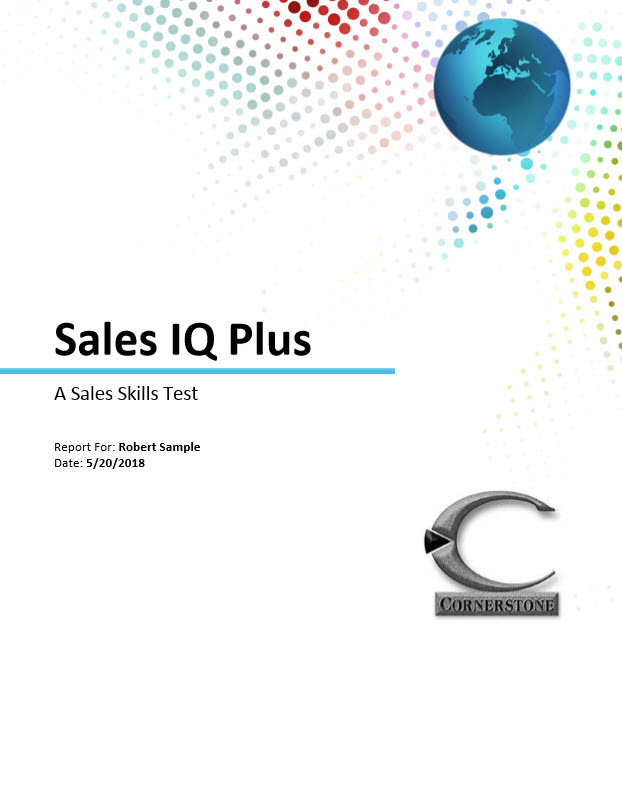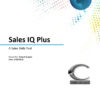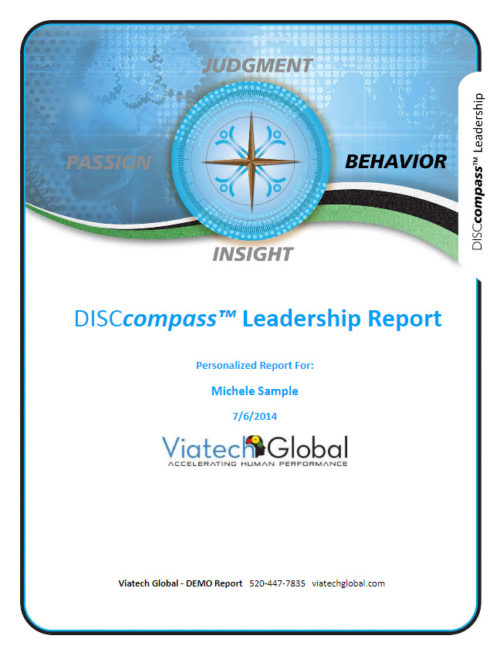Most people know that the measure of a salesperson’s success is their ability to make new sales. However, how can a sales manager or organization predict a sales professional’s current skill level? Likewise, how can sales professionals see through the opaque lens of self-bias and identify their own areas of improvement, while finding the practical solutions for correcting them?
As with any profession, selling has a body of knowledge related to successful execution. There are a multitude of skills, behaviors, knowledge and attitudes involved in any successful sales career. To know how to improve your own sales performance requires that you periodically examine all of these aspects. The Sales IQ Plus assessment offers such an objective analysis and essentially answers the question, “What, specifically, is keeping this person from selling more?”
This award-winning sales skill assessment was jointly developed by best-selling authors Jeffrey Gitomer (The Sales Bible,) Jim Cathcart (Relationship Selling) and Dr. Tony Alessandra (The Platinum Rule for DISC Sales Mastery.) Borrowing upon the wisdom and experience of these three authorities, Sales IQ Plus measures a sales professional’s understanding of the strategies required to sell successfully in any environment.

in a row! (2015-2018)
This assessment takes approximately 30 minutes to complete and consists of 48 questions that guide you in assessing each of the eight primary sales competencies, along with some vital selling traits. A sales “competency” is a category of selling proficiency that contains a number of different skills and knowledge components. All eight competencies combine to provide an overview of your current selling effectiveness.
Each of the eight primary competencies is explored from a variety of perspectives:
- Preparing for the sale and preparing yourself. You can be well prepared with information and sales tools, but if you are not
in the appropriate frame of mind, or if you do not appear professional to the buyer, you might not get the sale.
- Targeting explores the markets or groups you may target as prospective buyers. Then, we focus on the individuals with whom you will make contact. This includes the sales strategies and tactics you select for each target market. Poor targeting with great selling skills would result in limited success because you would be selling to the wrong people.
- Connecting is the initial sales contact step, where you must appeal to people intellectually so they will see you as a credible resource, and emotionally so that they will trust you as a person. Without either, you are inhibited from learning enough about them to solve their problems and make a sale.
- Assessing needs and wants uncovers what to sell and how to sell it, primarily through probing and listening. As they say, “In sales as in medicine, prescription before diagnosis is malpractice.”
- Solving the buyer’s problem, or filling their need, is where most of the sales attention has been placed in the past. This is the part where you present your solutions, tell your stories, demonstrate your product or describe the outcomes that buying will produce. At its lowest level, this is a sales pitch. At its highest level, this is a dialogue where you prove there is great value for them in buying from you.
- Confirming is the sales phase where you gain the prospect’s commitment to buy. Confirming is achieved only after you have shown the ability to solve the prospect’s problem. Historically, this has been known as “closing” the sale, but the truth is that it is not an end, but the beginning. It is at this point that the sales professional begins serving the customer and they, in turn, begin paying for the value they receive.
- Assuring clients that the value promised will be received is critical to customer retention. This is where relationships are built and customer loyalty is to be given (by you) more than expected (from them).
- Managing is the final phase of the sales cycle, where you manage sales and accounts and self-manage yourself. Ultimately, we are all our own ‘sales manager’. This is the phase of selling where you must make yourself do what needs to be done, even when you do not feel like doing it.
By assessing your sales effectiveness in each of the eight areas, you will gain an overview that enables you to be a much more effective self-manager and consistently successful sales professional.
Note: Each situation was developed and validated by sales professionals to reflect real sales strategies used by today’s sales force.






